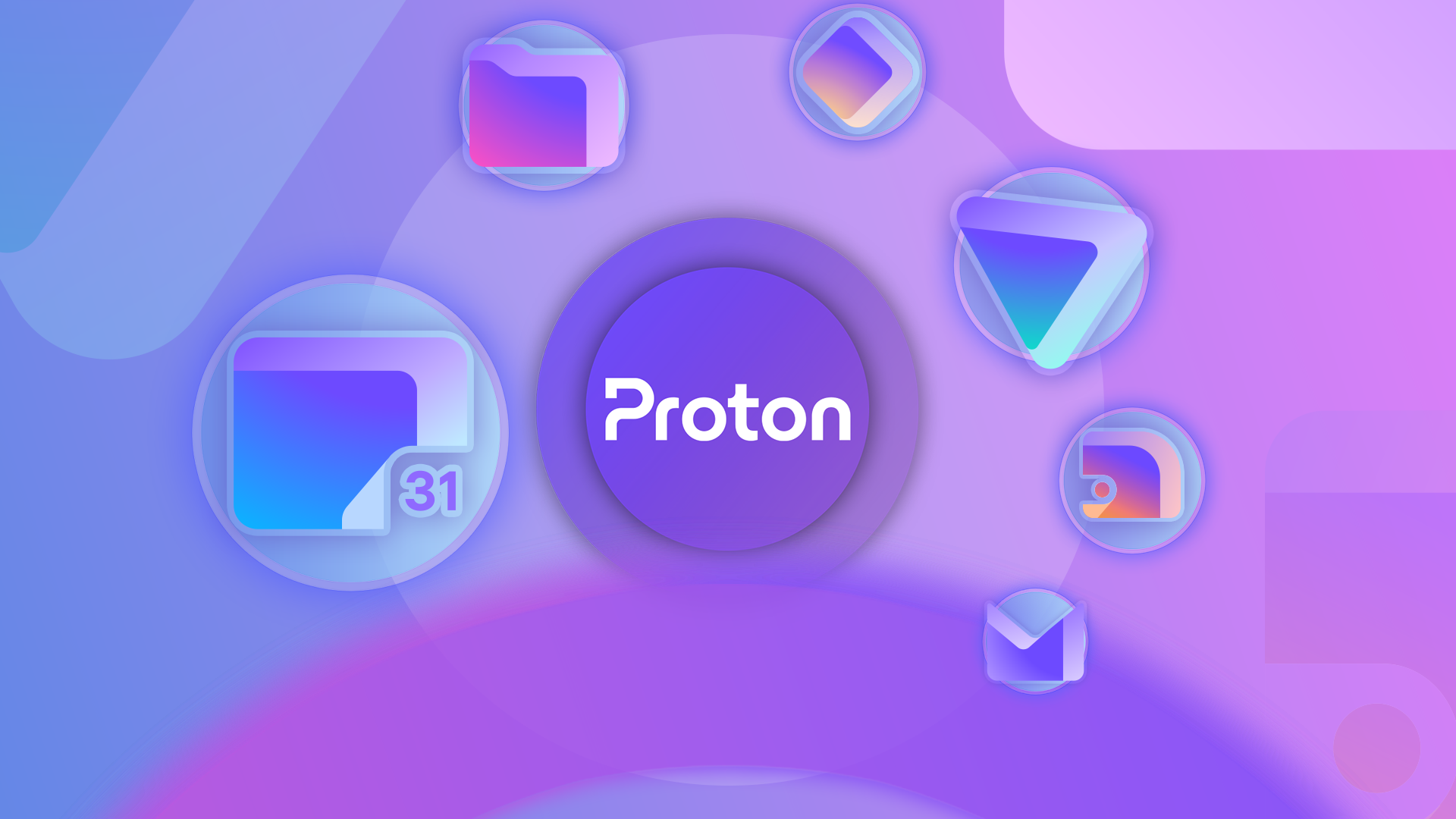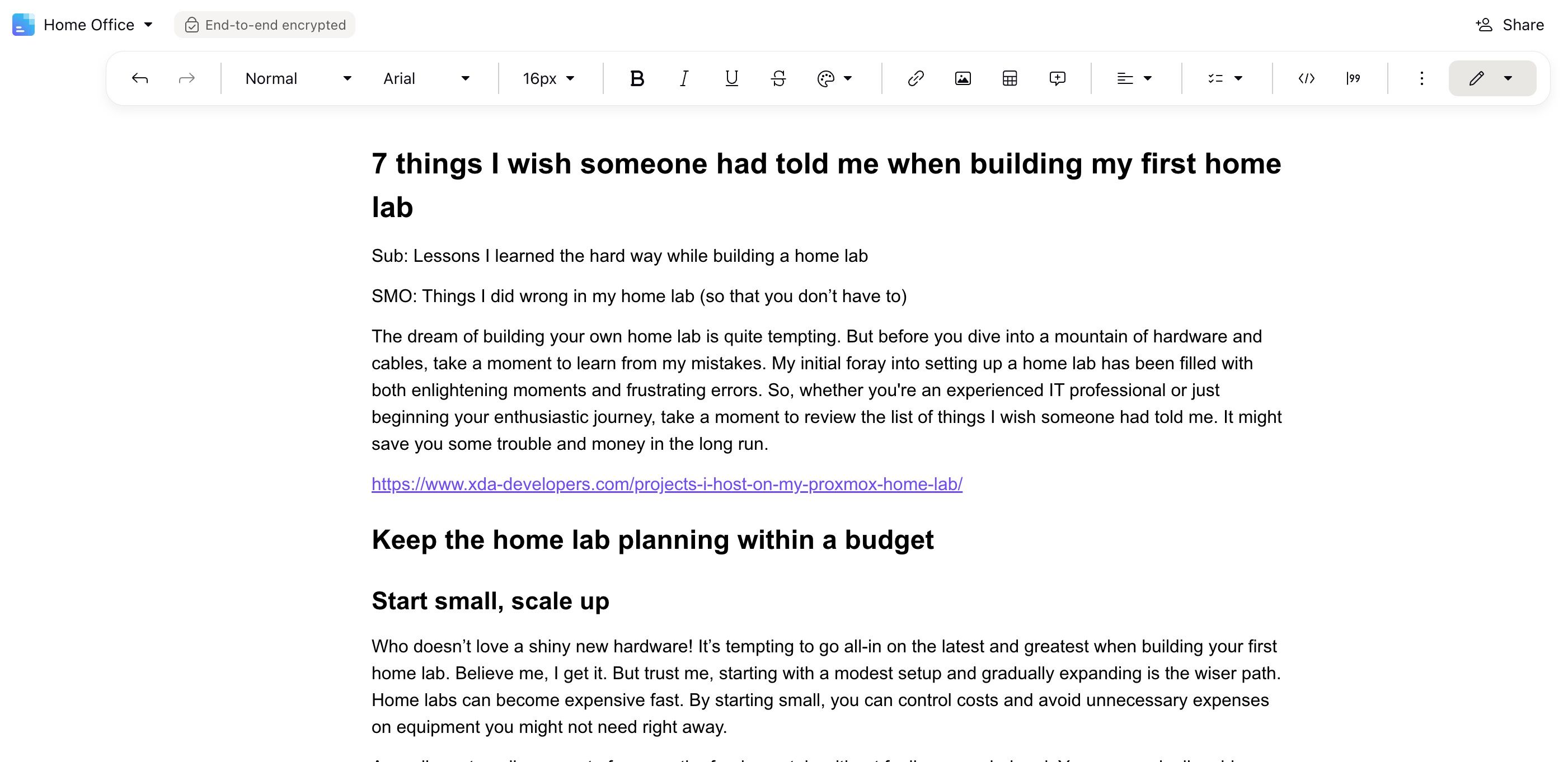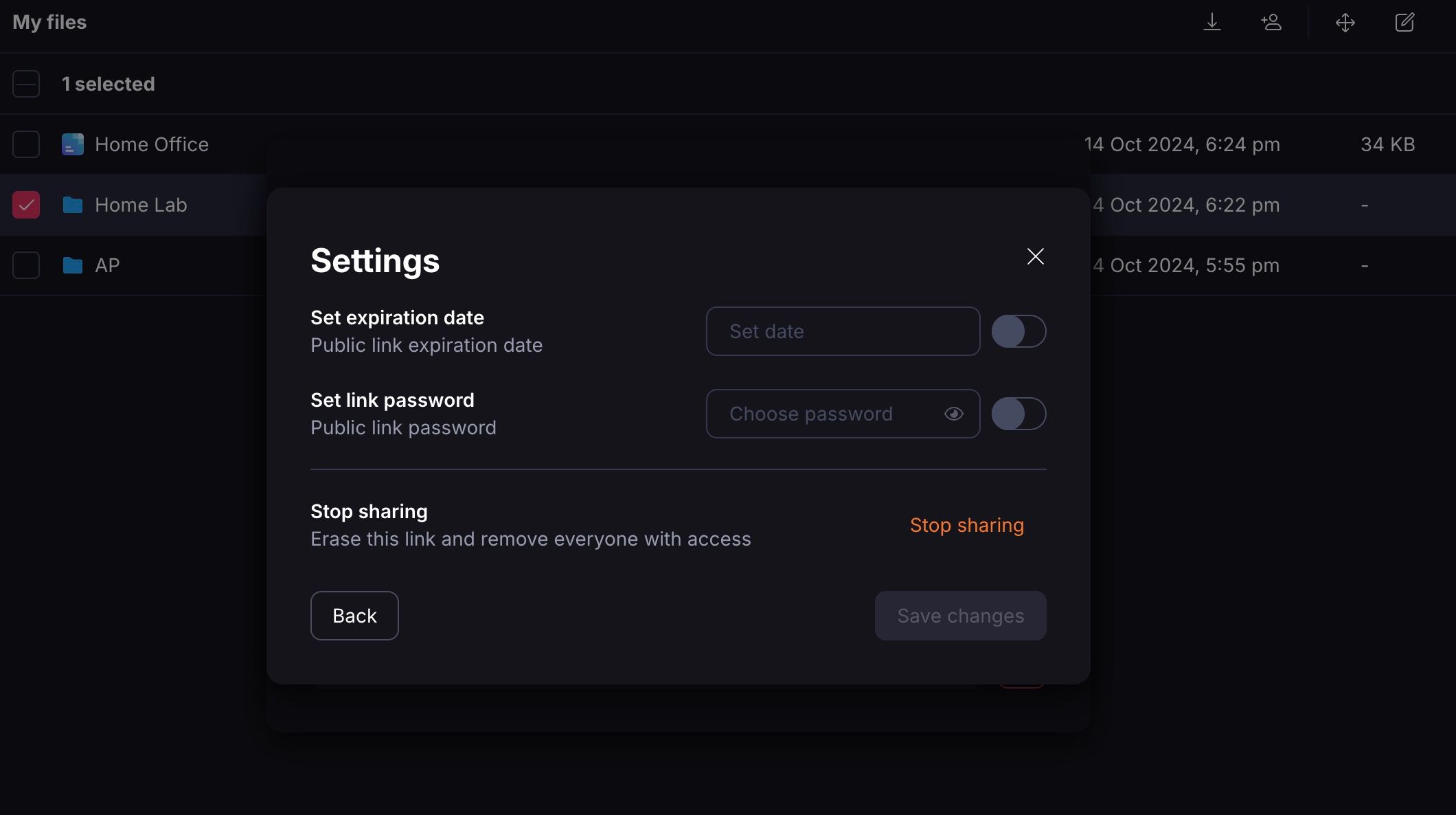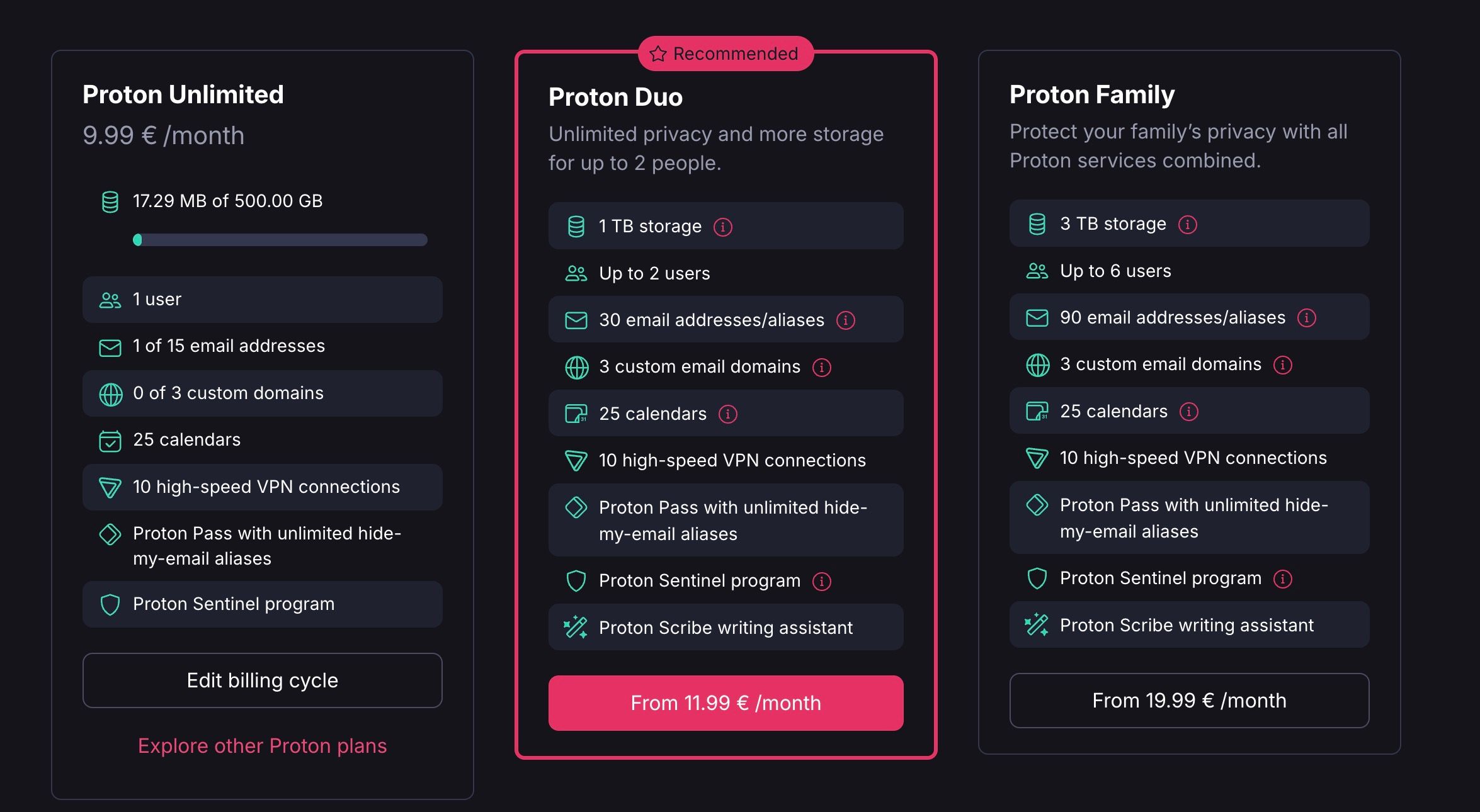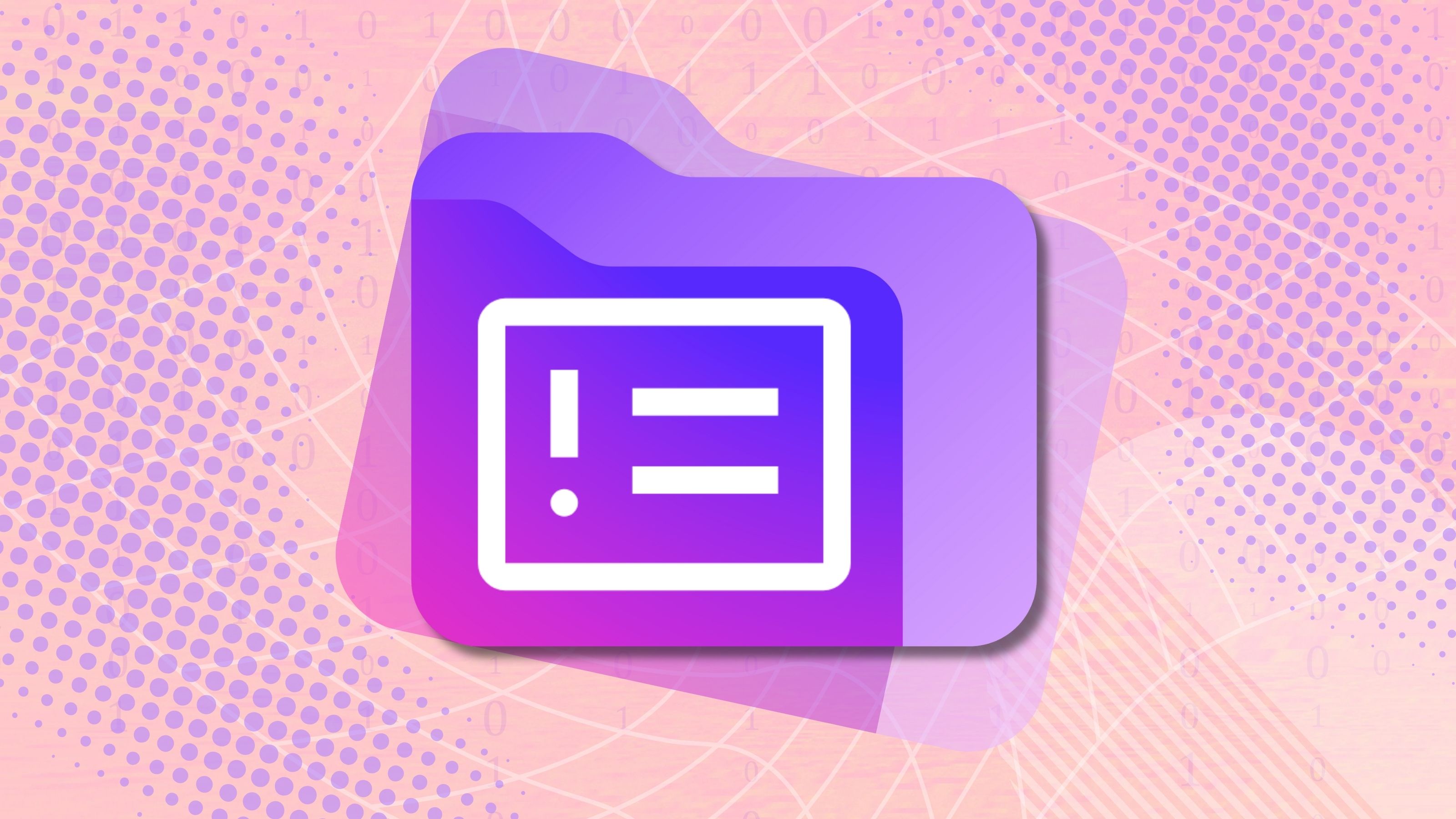I lived solely within the Proton ecosystem for a month. I ditched familiar services such as Gmail, Google Drive, Google Calendar, Docs, ExpressVPN, and 1Password for their privacy-focused alternatives. This wasn’t a casual test for a day or two. It was a full-fledged migration on my desktop and Android phone. I wanted to test whether I could escape from mainstream apps.
In this post, I provide a transparent account of my 30-day journey. I highlight Proton’s undeniable strengths and address the practical hurdles and potential drawbacks I faced during the month.
Native apps on all the platforms
Proton apps are a joy to use
Source: Proton
One of the most seamless aspects of my transition to the Proton ecosystem was the availability of native applications. Since I use a MacBook Pro, a Windows desktop, and a Pixel 8 in my workflow, I didn’t have difficulty accessing my emails, files, and events. Each app felt polished and thoughtfully designed and offered a user experience that rivaled, and in some cases, surpassed, the mainstream alternatives.
I never encountered frustrating compatibility issues or clunky interfaces. The consistent performance across platforms was a significant factor in making my transition smooth. I didn’t struggle with web interfaces or rely on third-party apps that might compromise my data.
Proton covers all the basics
With one exception
The Proton ecosystem impressed me with its range of digital tools. The company didn’t just offer cloud storage and email service and call it a day. The company built a suite of applications that address a range of everyday needs.
Proton Mail serves as a communication hub, Proton Drive is my encrypted file storage, Proton Calendar is ideal for privacy-focused scheduling, and Proton Docs for collaborative document editing. The ability to create up to 15 unique email aliases was a particularly useful feature to protect my online identity and minimize spam. The addition of Proton Pass, a password manager, strengthens the ecosystem’s security offerings.
The recent integration of Proton Wallet is a timely and welcome addition, especially given the growing interest in cryptocurrency. However, there is one notable omission: a dedicated note-taking application. I had to rely on other tools to get the job done.
Proton recently acquired Standard Notes, a privacy-focused note-taking service. I’m hopeful that Proton will soon integrate a robust note-taking app into its bundle.
Secure and private sharing options
Gives a much-needed peace of mind
Among all of Proton’s features, two add-ons stood out for me. The ability to password-protect shared files adds a crucial layer of security. Even if a shareable link falls into the wrong hands, it prevents them from unauthorized access without a password.
Setting an expiration date for shared links enhances security. This feature is invaluable for time-sensitive information or when I want to limit the window of access. It ensures that shared files are no longer accessible after a specified period. However, I occasionally have collaboration issues as most users don’t have a Proton account.
These features, combined with Proton’s end-to-end encryption, create a robust security framework.
Subscription prices make sense
Especially if you pay for the Duo plan
At first glance, Proton’s pricing, particularly around storage, might feel expensive. $11 USD for 500GB can seem steep compared to some mainstream cloud storage providers. However, it’s not only about storage. That $11 unlocks access to a powerful combination of services.
When you factor in a password manager, VPN service, Proton Wallet, and more, the asking price becomes more reasonable. You’re not only paying for storage. You’re investing in a complete privacy ecosystem.
There are a few misses
Keep these in mind
My experiment with the Proton ecosystem wasn’t flawless. There were a few instances where I missed Google’s ecosystem. While Proton Docs and Calendar offer collaborative features, their effectiveness is hampered when team members or collaborators aren’t within the Proton ecosystem.
Another area where Proton fell slightly short was media management. Proton Drive’s photo and video handling is basic. It displays all media in a single, chronological stream and lacks the organization and advanced features of dedicated photo management services. There is also a learning curve with an entire suite of new services in your workflow.
Proton VPN won’t win any awards in terms of speed. Compared to ExpressVPN, I found their VPN servers slow and glitchy.
The ultimate Proton challenge
My month-long experiment with the Proton ecosystem has been a revealing journey. While no ecosystem is perfect, and there were moments of adjustment, Proton makes a compelling case for privacy-minded folks. If you are concerned about your online privacy, I encourage you to explore the Proton ecosystem. You can sign up for a 30-day free trial and see if it aligns with your needs. If you decide to go with the Proton ecosystem, make sure to set up Proton Drive on your Windows desktop and Mac.
